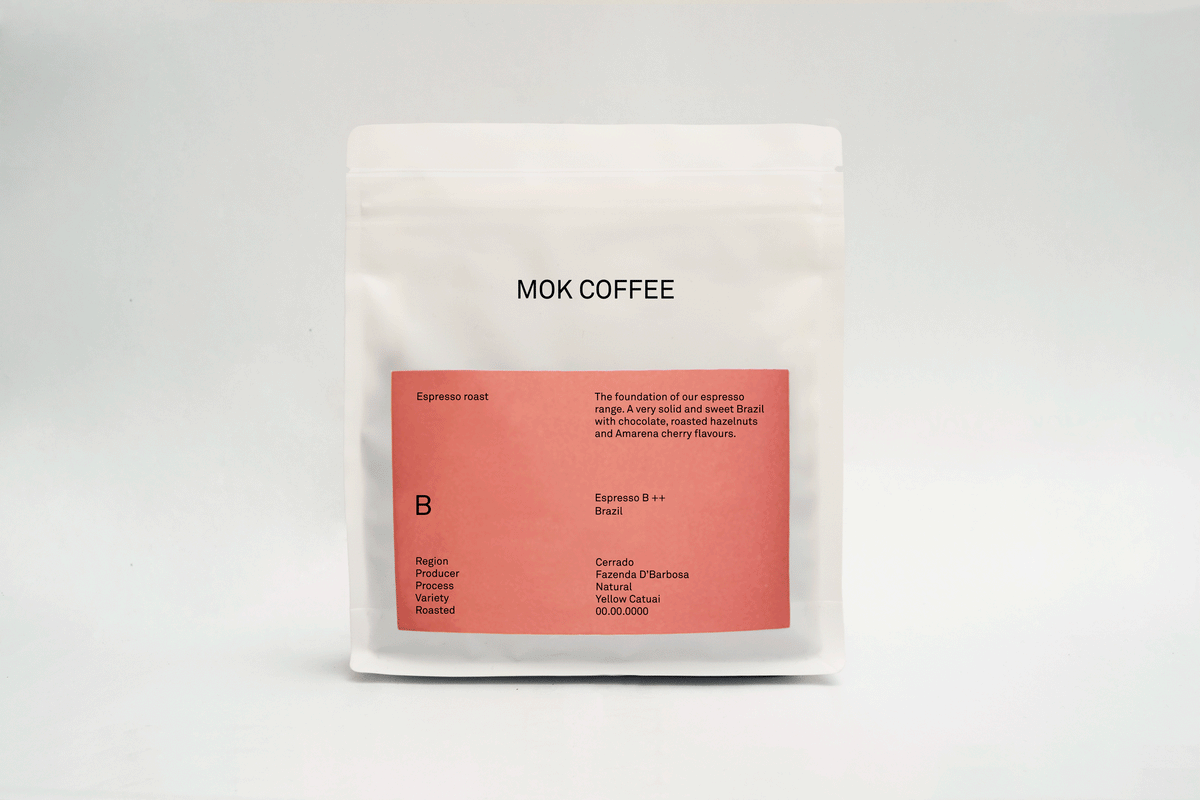
Espresso B ++, Brazil (ideal for fully automatic machines like Jura)
Espresso B stands for 100% Brazil, no blends, all credits to the producers. We work with the same producers every year and aim for the best possible quality only. Rancho Grande is a coffee farm located in Três Pontas, South of Minas Gerais, Brazil, at 950 meters above sea level. The estate spans 2,350 hectares, with 517 hectares dedicated to coffee cultivation. The Reis family has been growing coffee here since 1933, with José Carlos and his son Flávio now in charge of the farm. They grow a range of varietals including Yellow Bourbon, Mundo Novo, Acaiá, Icatu, Rubi, Arara, and Topázio. Over the years, the Reis family expanded and refined its production methods. They invested in static drying boxes to optimize the drying process and continue to experiment with fermentation methods to create unique flavour profiles. Sustainability is a core value for them. The farm protects water springs, uses renewable energy, offsets CO₂ emissions, and actively conserves local wildlife. They also implement integrated pest management, biological control, and an integration system while using organo-mineral fertilizers. With a strong focus on quality, innovation, and sustainability, Rancho Grande delivers coffee that respects both flavour and the environment. Expect a pleasant sweet cup with notes of milk chocolate, roasted hazelnut and strawberry.
Description
| Origin | Três Pontas |
| Producer | Jose Carlos Reis |
| Process | Natural |
| Variety | Yellow Bourbon, Mundo Novo, Acaia |
| Notes | The foundation of our espresso range. A sweet and round Brazil with notes of milk chocolate, hazelnut and strawberry |
Brewing
To discover these flavour profiles we recommend to use soft mineral water with a low HCO3 (bicarbonate) & aim for total hardness of less than 140 mg/l.